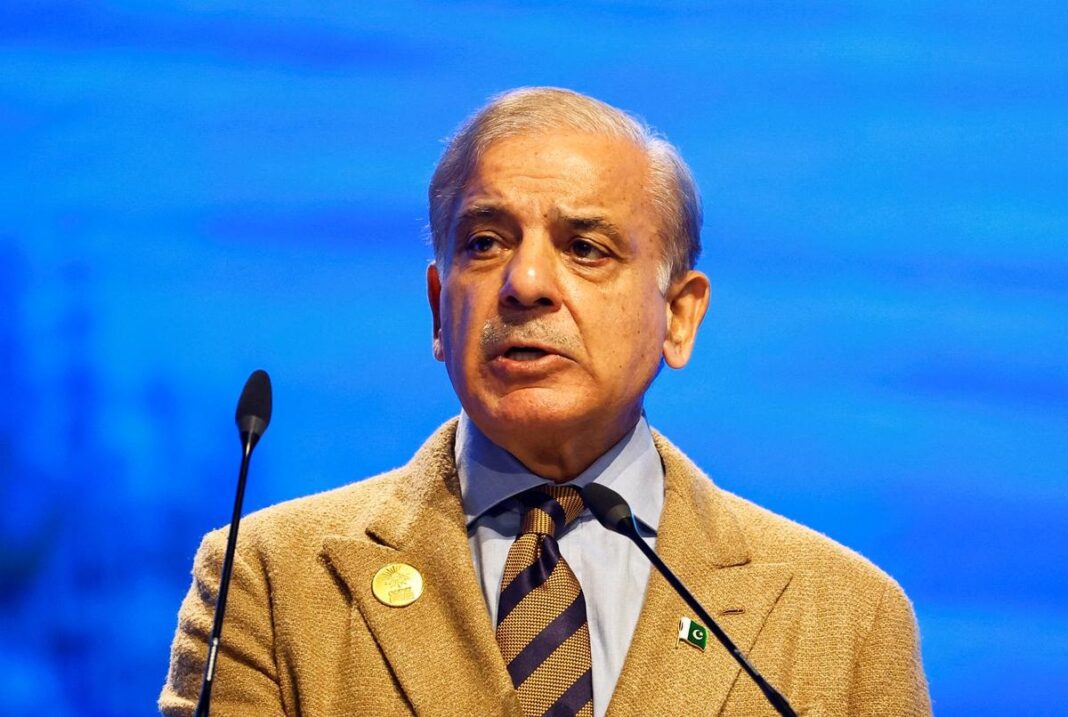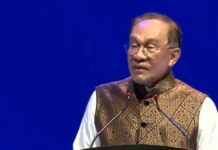In a decisive rebuttal to Pakistan’s Prime Minister Shehbaz Sharif’s speech at the United Nations General Assembly (UNGA) on Friday, India asserted that Islamabad’s history of cross-border terrorism has global repercussions and will lead to severe consequences. India’s First Secretary to the UN, Sneha Dubey, delivered the hard-hitting response, highlighting Pakistan’s alleged involvement in various terrorist incidents worldwide.
“The world knows that Pakistan has long employed cross-border terrorism as a weapon against its neighbours,” Dubey stated. She pointed to several high-profile attacks, including the assault on India’s Parliament and the 2008 Mumbai attacks, underscoring the hypocrisy of a nation with such a tumultuous history criticizing violence elsewhere. “For such a country to speak about violence anywhere is hypocrisy at its worst,” she added.
Dubey stressed that Pakistan must recognize that its continued support for terrorism against India would “inevitably invite consequences.” She further condemned Pakistan’s record on human rights, referring to its 1971 genocide and ongoing persecution of minorities. “It is ridiculous that a nation that committed genocide in 1971 and which persecutes its minorities relentlessly even now dare speak about intolerance and phobias,” Dubey asserted.
Shehbaz Sharif’s speech had accused India of expanding its military capabilities and called for the reversal of the 2019 abrogation of Article 370, which granted special status to Jammu and Kashmir. Sharif claimed that instead of pursuing peace, India has moved away from commitments made in Security Council resolutions regarding Kashmir, which mandate a plebiscite for the region’s residents to exercise their right to self-determination.
“Even more worryingly, [India] is engaged in a massive expansion of its military capabilities which are essentially deployed against Pakistan,” Sharif warned. He also vowed that Pakistan would respond decisively to any perceived aggression from India, reinforcing the ongoing tensions between the two nuclear-armed neighbors.
In his address, Sharif touched on various global issues, including the conflict in Gaza and rising geopolitical tensions, framing Pakistan as a nation facing significant challenges. However, India’s response remained focused on the core issue of terrorism and Pakistan’s historical role in fostering a culture of violence.
India has consistently maintained its desire for normal neighborly relations with Pakistan but insists that the onus lies with Islamabad to foster an environment free of terrorism. Following the abrogation of Article 370 in August 2019, which Pakistan viewed as a significant blow to the peace process, diplomatic ties between the two countries have remained severely strained.
As the UNGA session unfolds, the ongoing exchange of strong rhetoric between India and Pakistan continues to draw international attention, highlighting the complex and often volatile relationship between the two nations.








Hi! Do you know if they make any plugins to help with Search Engine Optimization? I’m trying to get my blog to rank for some
targeted keywords but I’m not seeing very good success.
If you know of any please share. Appreciate it! You can read similar
art here: Eco blankets
Good day! Do you know if they make any plugins to assist with Search Engine Optimization? I’m trying to get my
site to rank for some targeted keywords but I’m not seeing very good gains.
If you know of any please share. Appreciate it!
I saw similar text here: Code of destiny
I am extremely inspired with your writing talents and also with the structure to your weblog. Is that this a paid subject matter or did you customize it yourself? Anyway stay up the nice quality writing, it is rare to look a nice weblog like this one today. I like thenews21.com !
I’m really inspired with your writing talents and also with the structure to your weblog. Is this a paid theme or did you customize it yourself? Anyway keep up the nice quality writing, it’s rare to peer a nice blog like this one these days. I like thenews21.com ! Mine is: Stan Store alternatives
I’m really inspired together with your writing talents and also with the structure on your weblog. Is that this a paid subject or did you customize it yourself? Anyway keep up the excellent high quality writing, it’s rare to look a great blog like this one these days. I like thenews21.com ! It’s my: Stan Store alternatives
cost generic clomid for sale can i buy generic clomid without dr prescription can you buy generic clomiphene prices where can i buy clomiphene pill where buy generic clomid clomid only cycle can you get generic clomid without a prescription
More text pieces like this would make the интернет better.
This is the gentle of writing I rightly appreciate.
order azithromycin generic – order metronidazole for sale cost metronidazole
order semaglutide 14 mg online – buy rybelsus online cyproheptadine 4mg us
buy domperidone cheap – motilium ca buy cyclobenzaprine 15mg sale
generic augmentin 1000mg – atbio info ampicillin uk
buy generic nexium 40mg – https://anexamate.com/ buy esomeprazole 40mg for sale
order coumadin 2mg generic – anticoagulant buy cheap generic hyzaar
order mobic 7.5mg without prescription – mobo sin buy meloxicam 7.5mg pill
buy prednisone without prescription – https://apreplson.com/ purchase deltasone
buy erectile dysfunction meds – https://fastedtotake.com/ herbal ed pills
amoxil uk – https://combamoxi.com/ buy amoxil pill
forcan where to buy – https://gpdifluca.com/# fluconazole 100mg cost
purchase lexapro sale – https://escitapro.com/# escitalopram 10mg for sale
difference between sildenafil and tadalafil – https://ciltadgn.com/ tadalafil (exilar-sava healthcare) [generic version of cialis] (rx) lowest price
cialis at canadian pharmacy – cialis and cocaine cialis vs flomax
order zantac 150mg generic – https://aranitidine.com/ zantac 150mg generic
can buy viagra london – https://strongvpls.com/ buy viagra in new zealand
More posts like this would add up to the online play more useful. azithromycin 500mg pill
This is the gentle of literature I truly appreciate. https://ursxdol.com/cialis-tadalafil-20/
The thoroughness in this break down is noteworthy. https://prohnrg.com/product/omeprazole-20-mg/
More articles like this would remedy the blogosphere richer. https://aranitidine.com/fr/acheter-cenforce/
I’ll certainly bring back to skim more. https://ondactone.com/simvastatin/
More content pieces like this would make the web better.
https://doxycyclinege.com/pro/ranitidine/
I couldn’t hold back commenting. Well written! http://bbs.51pinzhi.cn/home.php?mod=space&uid=7059413
forxiga medication – https://janozin.com/# dapagliflozin 10mg drug
xenical buy online – order orlistat xenical 120mg pill
I’ll certainly bring back to review more. http://www.underworldralinwood.ca/forums/member.php?action=profile&uid=493387
You can conserve yourself and your family close being heedful when buying medicine online. Some pharmacy websites manipulate legally and put forward convenience, privacy, cost savings and safeguards over the extent of purchasing medicines. buy in TerbinaPharmacy https://terbinafines.com/product/crestor.html crestor
Thanks on sharing. It’s top quality. cialis super active en ligne
More posts like this would force the blogosphere more useful.
Đến với J88, bạn sẽ được trải nghiệm dịch vụ cá cược chuyên nghiệp cùng hàng ngàn sự kiện khuyến mãi độc quyền.
Đến với J88, bạn sẽ được trải nghiệm dịch vụ cá cược chuyên nghiệp cùng hàng ngàn sự kiện khuyến mãi độc quyền.
Đến với J88, bạn sẽ được trải nghiệm dịch vụ cá cược chuyên nghiệp cùng hàng ngàn sự kiện khuyến mãi độc quyền.
Tham gia cộng đồng game thủ tại Go88 để trải nghiệm các trò chơi bài, poker phổ biến nhất hiện nay.
Với giao diện mượt mà và ưu đãi hấp dẫn, MM88 là lựa chọn lý tưởng cho các tín đồ giải trí trực tuyến.